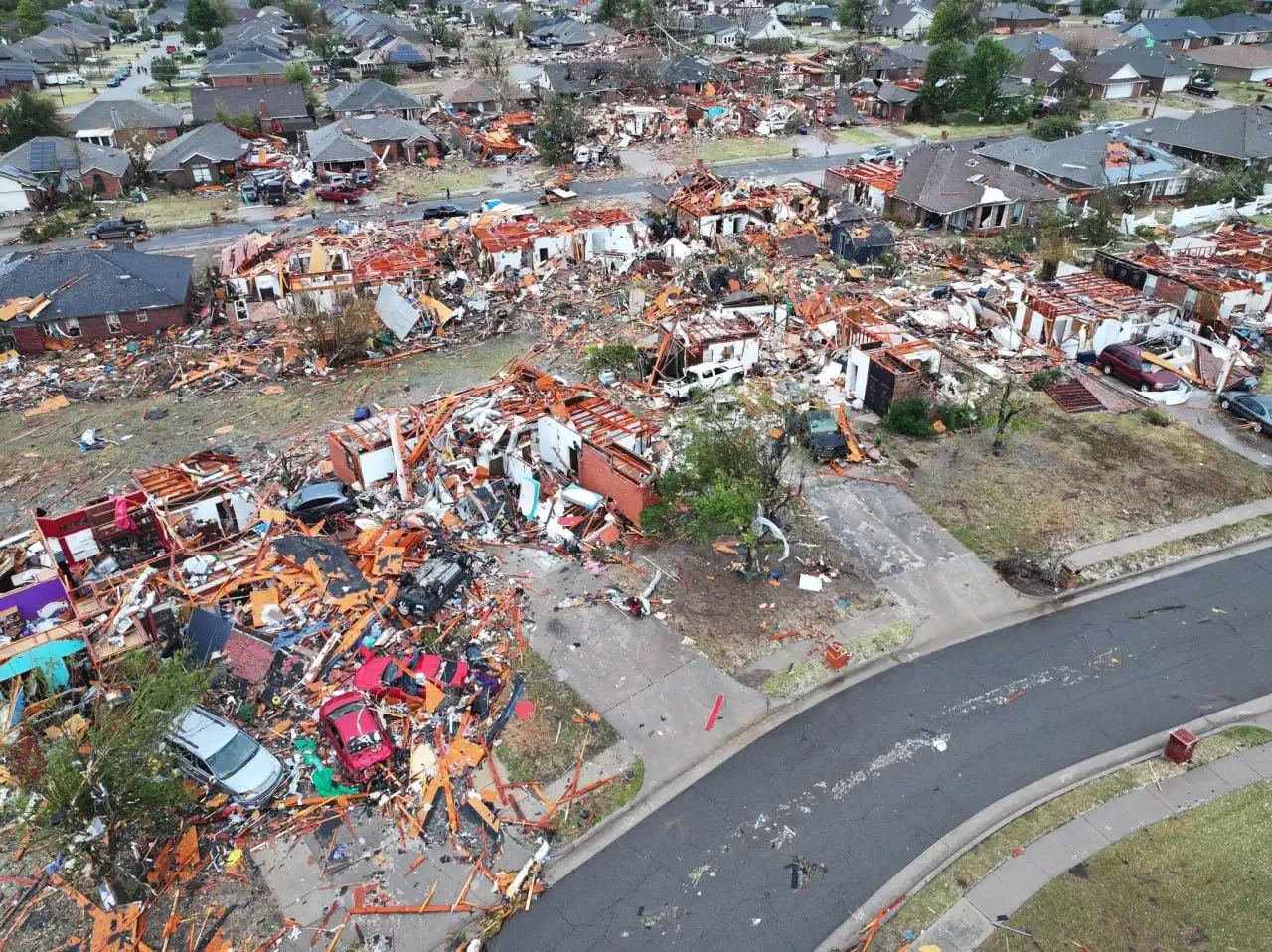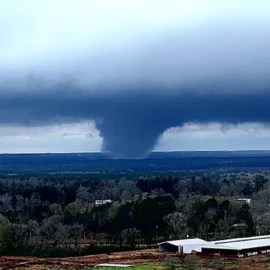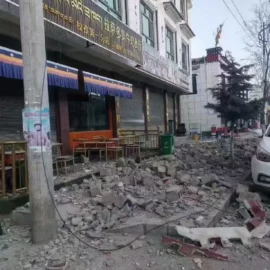Devastating Tornadoes Rip Through Oklahoma Overnight: 11 Injured, 95,000 Left in the Dark

In the early hours of Sunday, November 3, 2024, a wave of intense storms and tornadoes tore through Oklahoma, leaving a path of destruction in their wake. Among the hardest-hit areas was Valley Brook, where a tornado with a preliminary EF-2 rating destroyed numerous homes, uprooted trees, and overturned vehicles. Harrah, another affected area, experienced damage at a possible EF-3 level, further complicating rescue efforts and recovery operations. In total, the severe weather resulted in at least 11 reported injuries and left 95,000 residents without power, with officials warning of ongoing flash flood risks across the state.
The aftermath of a tornado in Oklahoma on November 3, 2024. #tornados #Oklahoma pic.twitter.com/IPampFQ7NU
— City Weather (@ukcityweather) November 4, 2024
Tornadoes Leave Trail of Devastation
The Oklahoma City area experienced some of the most severe tornado activity, with reports indicating multiple touchdowns through Sunday morning. A particularly powerful tornado swept through Valley Brook, a neighborhood within the Oklahoma City Metropolitan Area. Preliminary assessments by the National Weather Service (NWS) Norman office rated this tornado as an EF-2 due to the extensive damage it caused. Homes in the area were left in ruins, with some losing entire roofs, while several vehicles were tossed and overturned. Harrah, located northeast of Oklahoma City, was struck by another tornado, estimated at EF-3 intensity, resulting in severe property damage and widespread devastation across the neighborhood.
In nearby Choctaw, residents were jolted awake as a tornado struck a residential area shortly after midnight. First responders, including firefighters and police officers, went door-to-door checking for injuries, while an elementary school gym was converted into a temporary shelter to assist displaced residents.
Power Outages and Infrastructure Damage
Across Oklahoma, the storms inflicted significant damage on infrastructure, leaving power lines downed and roads littered with debris. Approximately 95,000 customers lost power as a result of damaged power lines and transformer explosions, with local utilities deploying emergency crews to restore service. Gas leaks were reported in several neighborhoods, compounding the hazards. Utility crews have been working around the clock to clear debris and repair damaged lines, though full restoration may take days due to the scale of the destruction.
Widespread Flooding and Urgent Weather Warnings
Severe rainfall throughout the night exacerbated conditions, with rainfall totals ranging from 50 to 100 mm (2-4 inches) in many areas, and up to 150 mm (6 inches) recorded around the Oklahoma City metro area. With rivers swelling and drainage systems overwhelmed, authorities issued flash flood warnings for Coal, Johnston, and Pontotoc counties, effective through early afternoon on Sunday.
The Oklahoma Department of Emergency Management reported localized flooding and confirmed at least one house fire triggered by a lightning strike. Additionally, Oklahoma Heart Hospital South sustained structural damage, though no injuries were reported at the facility.
As of early Sunday, the National Weather Service issued an ongoing Tornado Watch for parts of Oklahoma and northern Texas, advising residents to remain on alert. The NWS Norman office also emphasized flash flood risks due to heavy rainfall anticipated later in the day. With additional thunderstorms expected, parts of Oklahoma City, particularly southeast, remain under high alert for potential flooding and continued severe weather conditions.
Campus Safety Precautions
At the University of Oklahoma, students and staff received urgent warnings overnight, prompting the school administration to advise seeking shelter on the lowest floors. The NWS issued a stern warning for those in the storm's projected path, advising immediate sheltering due to the unpredictable nature of the storm system.
As emergency teams and state agencies coordinate response efforts, residents in affected areas are urged to remain indoors, monitor local alerts, and prioritize safety as cleanup efforts begin. Further severe weather is expected, posing an ongoing risk of heavy rainfall, flooding, and dangerous conditions through the day.
For those in Oklahoma, caution and preparedness remain critical as the state faces the continued impact of these destructive storms and tornadoes.
Founder and chief forecaster of the Pogodnik service. He has many years of experience in the meteorological service. He is the author of numerous scientific publications and popular articles about the weather.




